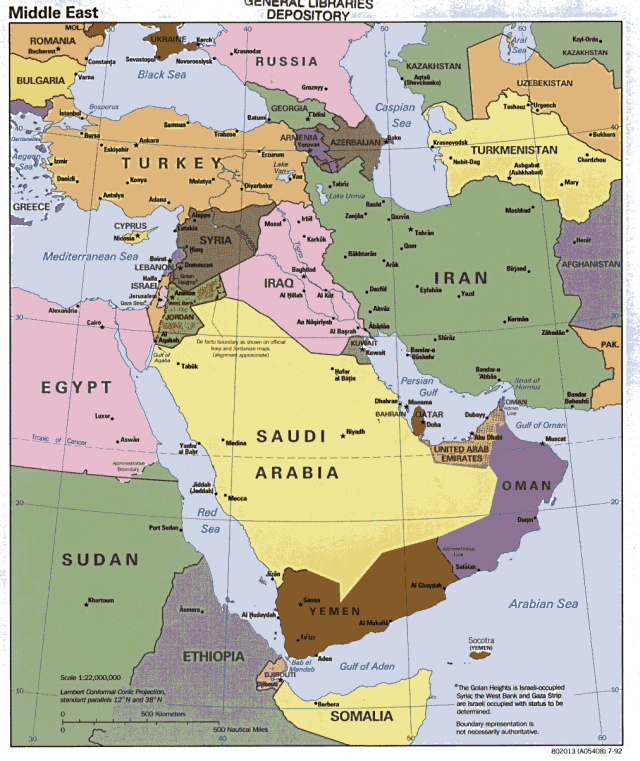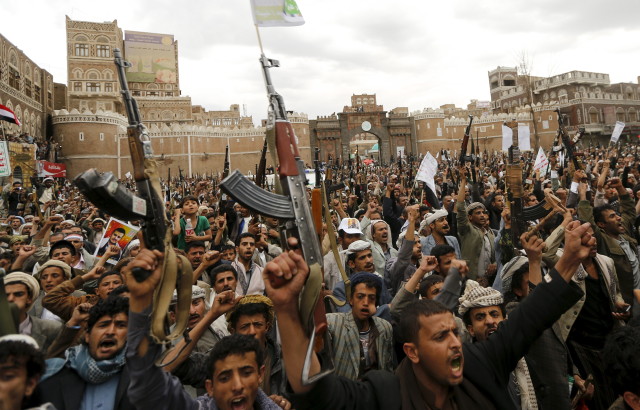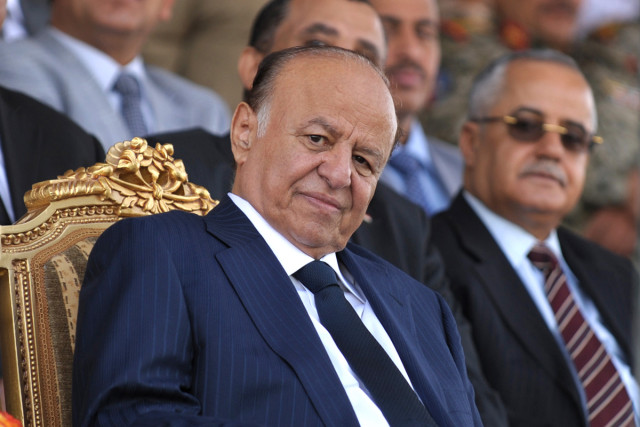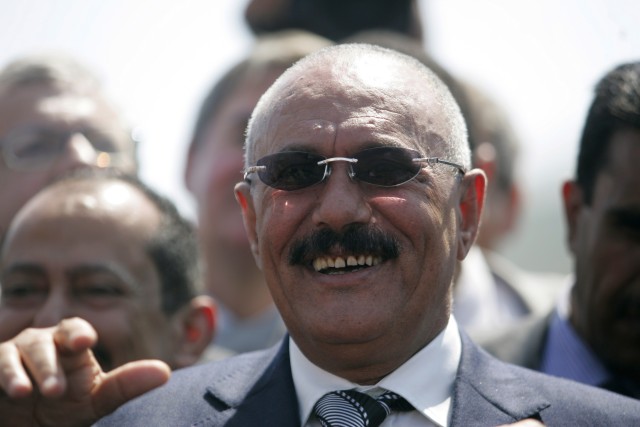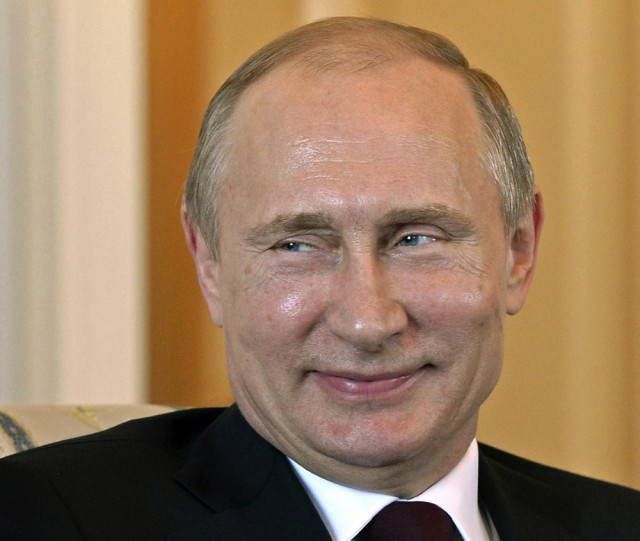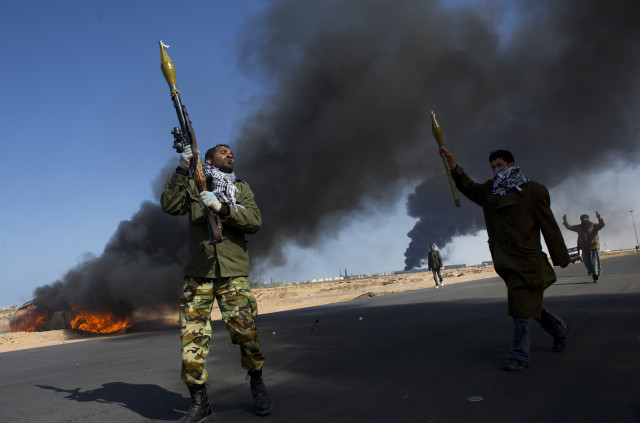By Suryansh Upmanyu
World War 3:
A topic commented upon by experts in various fields and conspiracy theorists alike. 70 years after World War 2 ended, there have been many instances where people have gone into a tizzy debating whether the new global crisis will lead to countries taking up arms against each other yet again. It hasn’t happened yet.
But the situation in the Middle East (i.e. the land of Arabian Nights) has sparked the debate once again. Post the Arab spring in 2010 (when these countries stood up against the dictators ruling in their countries), the situation still isn’t peaceful enough.
Northern Thunder:
Rebel groups in Syria continue to fight President Bashar al-Assad’s army. The Syrian government continues to hold on, now with the aid of Russia and Iran. ISIS continues to maintain its stronghold over its captured territories. Chaos continues to reign supreme in a country torn apart by violence.
And now, there are speculations of a world war.
Saudi Arabia is organizing a massive international “military exercise” along its northern border, called the “Northern Thunder”. The exercise is said to consist of 350,000 soldiers, 20,000 tanks, 2,450 warplanes and 460 military helicopters. Other than Saudi Arabia, countries like the United Arab Emirates, Egypt, Jordan, Bahrain, Sudan, Kuwait, Morocco, Pakistan, Tunisia, Oman, Qatar, Malaysia etc have also contributed troops.
The move by Riyadh comes after a failed attempt to assist the Syrian rebel groups in ousting the Shia majority government. Saudi Arabia had backed the Sunni insurgents to overthrow Assad, but the fact that he held on, and is now being assisted by Russia and Iran, has made the Saudis wary of a growing Shiite influence in the region. They also failed at bringing incumbent president Hadi back to power in Yemen, which has only led to a growth of Iran’s strength in the region.
Hence the military exercise.
With USA – an ally of Riyadh – reducing its activities in the Middle East, Saudis are looking at forging new alliances through this exercise.
The exercises started on February 14 (couldn’t they have waited one more day?) and plan to go on till March 10.
Ok, so now you might be asking, “Hey! It is just a military exercise. Where did World War 3 come into the picture?”
I don’t think you have seen too many Hollywood action movies.
“Military exercise” is a euphemism for countries planning to go to war against someone. No one announces that they will wage a war until they actually do so. So, to reduce suspicion of troop movements, a military exercise sounds like a plausible reason to give for all the tanks moving on your neighborhood street.
Now, imagine this. If Northern Thunder does lead to a war against Syria, it will absorb all 20 countries taking part in the exercise. Syria will retaliate by calling its allies – Russia and Iran. Turkey, if attacked (collateral damage happens all the time) will force the NATO members to join the war as well.
There is your World War 3.
The Yemen Crisis:
Yemen has been riddled by conflicts throughout its history. But the current crisis has taken a nasty turn as experts feel that it could lead to a division of the nation forever.
It started with the Houthis attacking Sanaa – Yemen’ s capital- and driving out the President Abed Rabbo Mansour Hadi in late 2014.
Very few people do seem to know about the conflict. So let me first give some details about how it all started.
The History:
The Houthis come from the Shiite community, specifically from the Zaydi sect (which forms a minority in the country). The Zaydis were quite active in demanding equal opportunities for them since the 1980’s but came together in 2003 to oppose the rule of then president – Ali Abdullah Saleh – and took their name from slain leader Hussein Badreddin al-Houthi.
Saleh was overthrown during the Arab Spring revolution in 2011 and was replaced by then vice president Hadi. But he turned out to be as ineffective as Saleh. The result was a revolt by the Houthis which led to Hadi fleeing the country.
The Interested Parties:
The Houthis: Also known as Ansar Allah, The Houthis turned against Saleh in 2003, opposing his backing to the USA’s war in Iraq. The movement gained significant momentum over the years and gained support from outside the country for their criticism of the transition of power to Hadi in 2011. They are said to be backed by Iran, which has led to a heavy criticism by Sunni majority countries like Saudi Arabia.
Abed Rabbo Mansour Hadi: An ineffective president, he gained power after Saleh was forced to stand down in 2011. Has a significant political backing from Saudi Arabia. He is absconding as of now but is still recognized as the official leader of the war-torn country.
Ali Abdullah Saleh: Still a major force to reckon with, even after his ouster. His party, the General Peoples’ Congress, holds a majority in the parliament and he has gained several followers who have grown disenchanted with the political transition. Surprisingly, they have got into an alliance with the Houthis to regain power in the land. (Imagine that! A case of foes-turned-friends maybe?)
Iran: it is alleged that the Houthis are controlled by Iran, but experts caution against believing so. Iran provides assistance to them because of a common interest – they want to reduce the dominance of Saudi Arabia in the region and the Houthis fighting against Saudi- backed Hadi give them a platform to do so.
Saudi Arabia: A major ally of the Hadi government, Saudis see the Houthi uprising as an Iranian scheme for the domination of Shias in the region. Till now, they have led countless attacks on Yemen on the pleas of absconding president Hadi to regain power and have also brought together other Sunni majority countries to join the cause.
Al-Qaeda in the Arabian Peninsula (AQAP): A branch of al-Qaeda, they have benefitted from the civil war and have started capturing regions on their own. Considering the political weaknesses of both the warring sides, they have come out as a strong force to reckon with and need to be dealt with soon.
The Current Situation:
The war still goes on. The Saudi-led coalition has captured some of the cities back from the Houthi rebels, including Aden, where president Hadi returned to in November. But the coalition has not focused on the growing AQAP insurgency, which has grown from strength to strength.
Experts are pessimistic about a peaceful solution and some have suggested that the most probable solution could be a division of Yemen. That is if the Saudis do not lead a full blown invasion into Yemen. That could be disastrous.
The Russia – Turkey Conflict:
November 24, 2015 – A Russian warplane was shot down near the Turkish- Syrian border by Turkish armed forces. Turkey said that they had warned the plane 10 times for obstruction of airspace before shooting it down. Russia denounced the attacks, threatening to retaliate against the Turks.
Background: With rebels in Syria up in arms against the Bashar al-Assad-led government, the political turmoil in the country (also intensified by frequent attacks from ISIS) led to Assad seeking help from its long-time ally Russia.
The Russians responded by sending in air support, bombing numerous rebel locations. This has helped the government to somewhat regain its control over the region now.
It has also led to a widespread criticism of Russia. Turkey, one of the rebels’ strongest allies, has frequently condemned Russia’s entry into the war, and the shooting down of the plane is being seen as a hostile action against Russia.
Present Scenario: Russia’s entry into the war has completely changed the equation of power, increasing Assad’s odds to survive. The move is seen more as Putin toying with his Western counterparts than him helping an ally in need. (Putin oozes swag)
Turkey has strongly criticized Russia’s role in the war and this has led to increased tensions between the two. The situation seems gloomier when we consider that any military action between the two countries will also force the NATO members to join in (Article 5 of the NATO treaty has a collective defense clause, making it mandatory for the other members to participate if any member is attacked), leading to the war escalating to a global level.
Turkey and Russia have been exchanging threats ever since the shooting down of the plane. France’s President Francois Hollande and European Union’s Foreign Policy Chief Federica Mogherini have expressed their concerns over the ongoing tension between the countries escalating to a full-on war.
USA and Russia have announced plans for a ceasefire in Syria, starting from Saturday, but neither the US officials, the Syrian rebel groups nor the Turkish forces believe that it would be respected by “all parties”.
And so the tensions build up still.



























